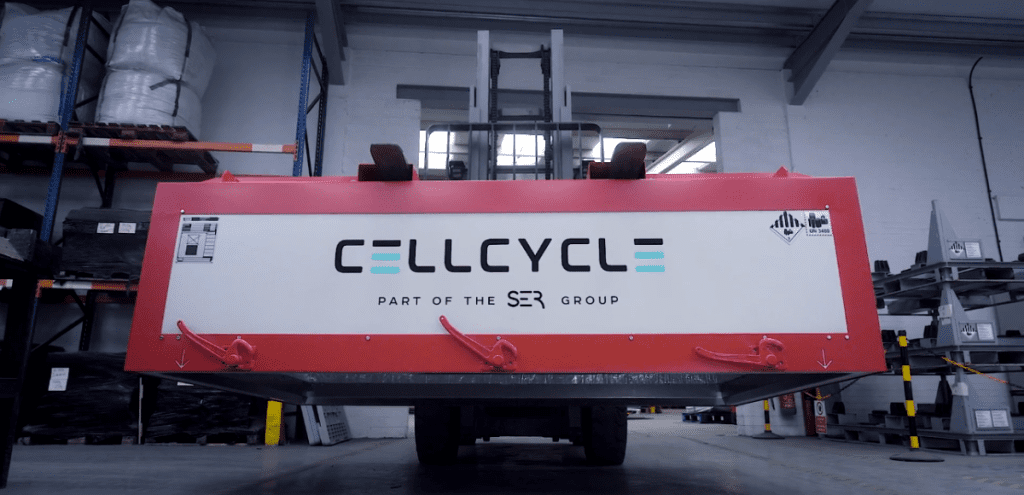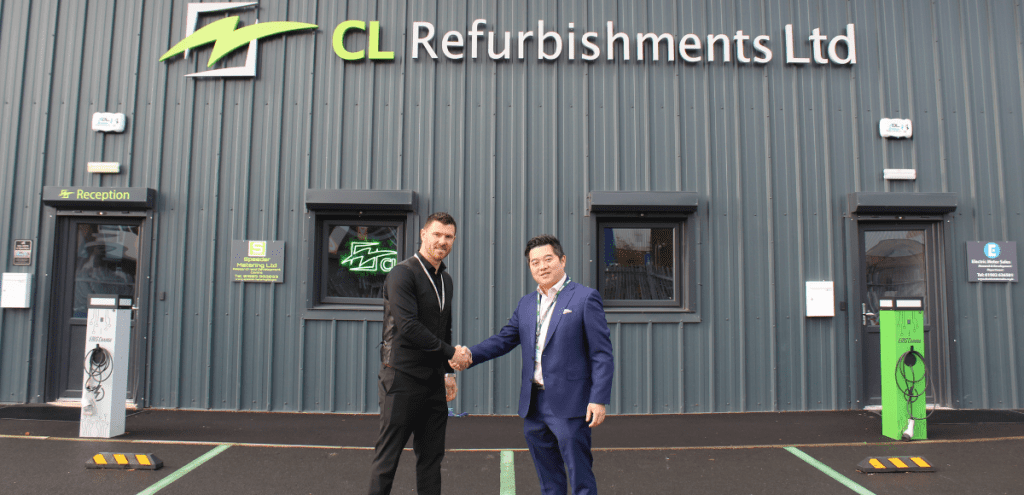As the electric vehicle (EV) industry continues to accelerate worldwide, it is rapidly reshaping the future of transportation. The rise in EV sales, driven by a strong push towards achieving the UK’s net-zero emissions goals, is positioning electric vehicles as the dominant mode of transport. However, this revolution brings with it a new set of environmental challenges, particularly concerning the end-of-life (EOL) management of lithium batteries. To address these challenges, Cellcycle is helping to close the loop on EV battery recycling in the UK, paving the way for self-sufficiency in battery materials and a sustainable future.
The Growing EV Market and Its Impact
The UK’s EV market is experiencing exponential growth. According to the Society of Motor Manufacturers and Traders (SMMT), more than 20% of all new car registrations in the UK in 2023 were EVs, reflecting the growing consumer shift towards greener alternatives to traditional vehicles. This surge is fuelled by the UK government’s commitment to achieving net-zero emissions by 2050, which includes a ban on the sale of new petrol and diesel cars by 2030. These policies, combined with advancements in EV technology and the expansion of charging infrastructure, are driving the adoption of electric vehicles across the country.
The adoption of EVs is not just a trend but a critical component of the UK’s broader strategy to combat climate change. As more consumers transition to electric vehicles, the environmental benefits are clear: reduced greenhouse gas emissions, improved air quality, and decreased reliance on fossil fuels. However, this rapid shift also presents a significant challenge—what happens to these vehicles, specifically their batteries, when they reach the end of their useful life?
The Environmental Challenge of End-of-Life EV Lithium Batteries
Lithium batteries, which power most EVs, are essential for their operation but pose significant environmental risks when improperly disposed of. These batteries contain a mix of valuable metals like lithium, cobalt, and nickel, as well as hazardous materials that can harm the environment if not properly managed. The European Environment Agency has emphasised that improper disposal of these batteries can lead to the release of toxic substances, including heavy metals and electrolytes, which can contaminate soil and water. When an EV lithium battery reaches the end of its life, its disposal becomes a complex and pressing issue.
Without effective recycling processes, the environmental impact of these batteries could be devastating. A study by the Faraday Institution highlights that the volume of lithium batteries requiring disposal will increase significantly over the next decade, making the need for efficient recycling methods more urgent than ever. Furthermore, the valuable metals within these batteries are finite resources; if they are not recovered, continued extraction will contribute to environmental degradation and resource depletion.
Efficient recycling of these batteries is essential not only to mitigate environmental risks but also to recover valuable materials that can be reused, reducing the need for new raw material extraction. This is where the role of innovative recycling companies becomes crucial.
Cellcycle: Leading the Way in EV Lithium Battery Recycling
At Cellcycle, our mission goes beyond simply recycling batteries; we are committed to building a circular economy for EV batteries in the UK. By helping to close the loop, we aim to reduce dependence on newly mined raw materials, mitigate the environmental impact of mining activities, and promote the sustainable sourcing of battery components. This approach not only aligns with the UK’s broader goals for sustainability and reduced carbon emissions but also strengthens the nation’s self-sufficiency in the critical materials that power the electric vehicle revolution.
Looking ahead, we are continuously evolving our processes and expanding our capacity to meet the growing demand for EV battery recycling. Our dedicated R&D project, proudly supported by Innovate UK and in partnership with Coventry University, focuses on developing bio-based technologies to make the recycling process more sustainable. This collaboration has been instrumental in advancing solutions that not only maximize the recovery of valuable metals but also significantly reduce the environmental impact compared to conventional methods.
By leading initiatives such as the introduction of LithiumCycle™ process and improving metal recovery, we are not just addressing today’s challenges—we are preparing for tomorrow’s opportunities. As the electric vehicle industry continues to grow, Cellcycle remains at the forefront of developing responsible solutions for the end-of-life phase of batteries. Together with our partners and customers, we are driving the change needed to ensure a sustainable future for generations to come.
To learn more about our ongoing projects and our role in shaping the future of EV battery recycling, stay tuned for our latest updates and insights on innovation in sustainability.
The Broader Impact on the Environment and Economy
The establishment of an efficient EV lithium battery recycling route in the UK has far-reaching implications. Environmentally, it significantly reduces the risk of hazardous waste entering the ecosystem. The European Commission has highlighted the importance of recycling in mitigating the environmental impact of batteries, noting that efficient recycling processes can recover up to 95% of valuable metals. This not only conserves resources but also reduces the environmental damage associated with mining and raw material extraction.
Economically, the recovery of critical materials such as lithium, cobalt, and nickel provide a sustainable supply for the growing EV industry. The demand for these materials is expected to soar as EV adoption increases, making efficient recycling a key factor in ensuring the long-term sustainability of the EV market. By developing advanced recycling processes, we are positioning the UK as a leader in sustainable battery management, supporting both environmental goals and economic growth.
Looking Ahead: The Future of EV Lithium Battery Recycling
As the country continues to push towards its net-zero emission goals, the need for efficient and sustainable recycling processes will become increasingly important. Our approach to lithium-ion battery recycling serves as a blueprint for how the industry can evolve to meet these challenges.
In conclusion, while the rise of electric vehicles is a crucial step towards reducing carbon emissions, it also presents new environmental challenges that must be addressed. Our innovative recycling route is a critical component of the solution, ensuring that the growth of the EV industry is matched by responsible and sustainable end-of-life battery management.


